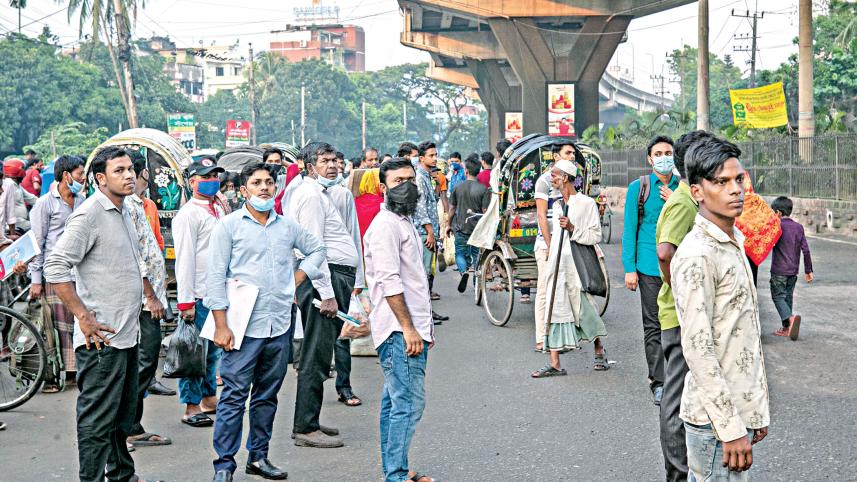Must we pander to every whim of transport owners?

We are disappointed to learn of yet another concession made by the authorities to transport associations in the form of late fine waiver for vehicles and drivers without updated documents. According to a report by this daily, the government, apparently under pressure from transport owners' associations, has waived the fines for failing to update necessary documents in time. This is the fourth time that it has announced such waivers since January 2020. Although the benefit would extend to all motor vehicles, private or commercial, it is the latter—buses, trucks and lorries—that have the most to gain from this as, according to insiders, a good number of the 450,000 commercial vehicles (and their drivers) don't have proper documents. The documents include a vehicle's fitness certificate, tax token, route permit, driver's licence, etc.
The threat that unfit vehicles and unlicensed drivers pose to road safety is not lost on us. The question is: Why would the government agree to such waivers? The chairman of Bangladesh Road Transport Authority (BRTA) has brushed aside the allegation of concessions and defended the decision, saying it would give vehicle owners who could not update their papers because of the Covid-19 lockdown a chance to do so now. But what makes it highly suspect is its timing, coming as it does mere weeks after a two-day transport strike organised to press home a 15-point demand, including the waiver of late fines. The repeated nature of waiver decisions—such periods of remission were also announced several times between 2015 and 2020—also shows that there is more to it than meets the eye.
Experts say the latest waiver decision cannot be seen in isolation from past concessions made to transport owners and workers, notably the inordinate delay in the implementation of the Road Transport Act, 2018, which remains ineffective even after three years. The law stipulated hefty fines on vehicles with outdated papers, among other punitive measures meant to bring discipline in the transport sector and curb road accidents. Its non-execution and the continued attempts to amend its more stringent provisions are proof of the enormous power exercised by transport owners and lobbyists, many of whom are directly linked to the ruling party. In essence, what we are witnessing is a helpless surrender to the transport associations at the expense of public interests.
It's worth recalling that it is largely because of noncompliant owners and drivers that the country witnessed a 40 percent rise in road accidents and deaths till July this year, compared to the same period last year, according to police data. As many as 3,095 people were killed in 3,259 road accidents in the first six months of this year alone. The numbers of accidents and deaths were 2,609 and 2,635, respectively, in 2018. The numbers rose to 4,198 and 3,918, respectively, last year. If the government continues to pander to the transport owners, allowing unfit vehicles to ply the roads and their drivers to get off scot-free, the number of casualties will only increase. We must not allow this to happen. The government must protect public interests, stop giving concessions to transport businessmen, and bring discipline in the sector.



 For all latest news, follow The Daily Star's Google News channel.
For all latest news, follow The Daily Star's Google News channel.
Comments